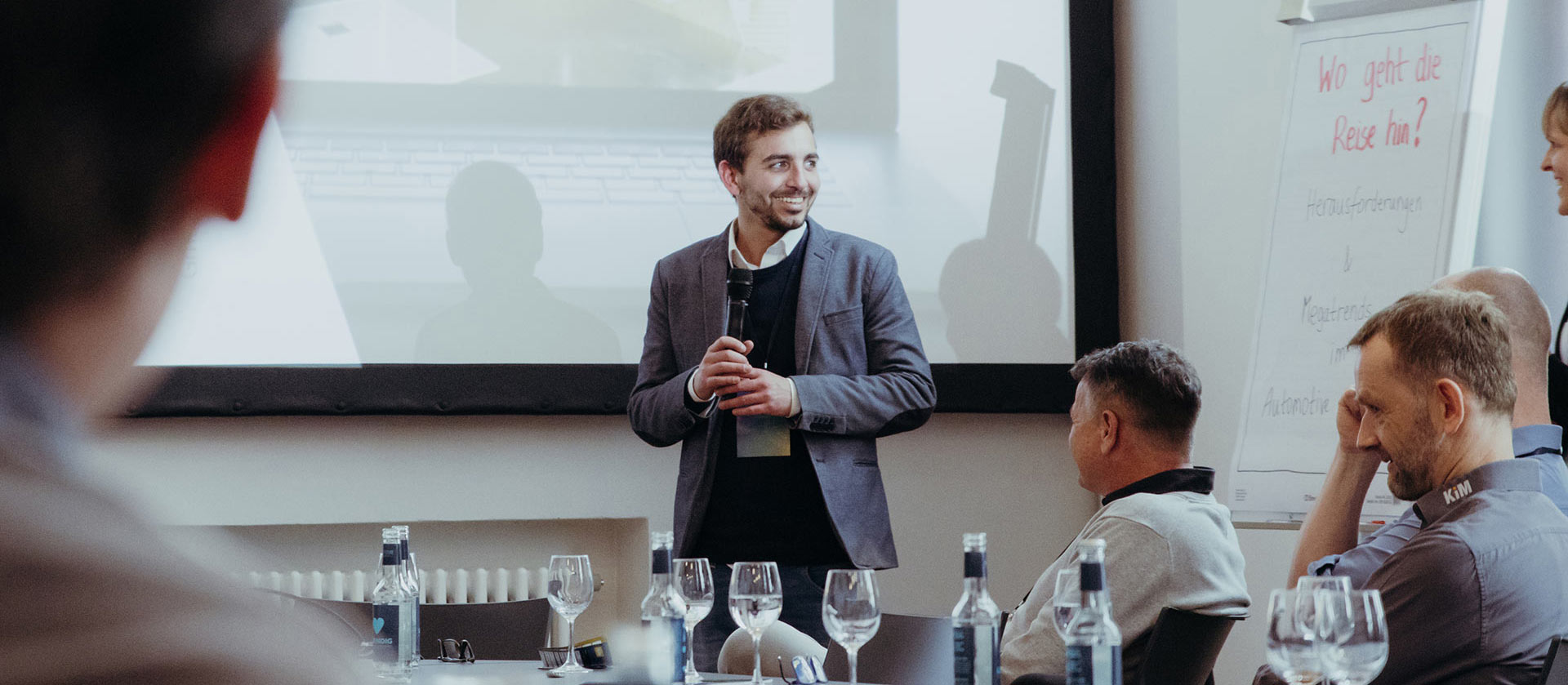B2B e-commerce is going through a period of upheaval and is presenting industrial companies with new challenges despite advanced e-commerce software. The COVID-19 pandemic and globalization have greatly accelerated this process. Innovative technologies and changing customer needs are opening up new sales channels. To remain competitive, companies must react quickly and flexibly.
But where to start? We have the answer(s) to four central questions.

E-commerce is more than just an online shop. Many companies think in project phases and neglect continuous development. However, e-commerce is so much more. It is the foundation for the digital transformation of the business model and other digital services. To be successful, we need to think holistically and break free from old ways of thinking. This is the only way to create customer journeys that inspire.
Digitization is crucial to business success. Companies that are slow to adopt innovative processes risk falling behind in the digital race. By establishing a clear vision of digital transformation at executive leadership level and consistency in implementation, decision cycles can be shortened, leading to competitive advantages. When digital transformation becomes part of a company’s DNA, all business areas can benefit, and a strong market position can be achieved. Or, to put it in the words of a Microsoft study (2022): “Those who digitize grow faster.”
The mechanical engineering industry holds enormous potential in terms of machine, production, and customer data. Those who do not use this data are missing out on competitive advantages – especially with regard to the new generation of B2B buyers who are almost at home on the internet. The success of an online shop depends mainly on the quality of the underlying data. Targeted analysis of this data makes it possible to deliver tailored content and tap into the unused potential.
Every customer has individual needs. That’s why companies should focus on human centricity and establish personalized (transformation) processes It is crucial to overcome the fear of change and allow for mistakes. Sometimes less is more. This means that even MVPs (Minimum Viable Products) lead to success. However, traditional mechanical engineering requires trust and a seamless interaction between direct contact with sales and digital workflows. Harmonious interaction instead of replacing employees is the focus. Because there is something that OpenAI and Co. will never be able to do: be human.

LENA SCHÖNLEBEN
junior marketing manager
Microsoft/Analysys Mason (2022): Microsoft small and medium business (SMB) voice and attitudes to technology study.
This might also interest you